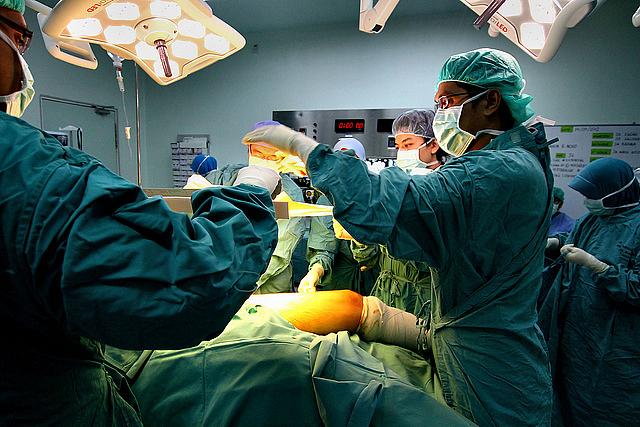Can surgeons improve care by recommending their peers?

Just how good is he? His peers should know.
When a medical claim is published, doctors ask if it was peer reviewed. Peer review is the reason that antibiotics, not surgery, are today a first-line treatment for ulcers. It helps doctors make better decisions for their patients.
How do patients make better decisions for themselves? Consider a patient who needs to choose a surgeon. Other than a limited and highly controversial surgeon scorecard – which did not undergo formal academic peer review – there has been essentially no help for patients asking which surgeon to use. The surgeon scorecard confronts us with questions. Where are the peer reviewed quality measures and tools that will help patients to objectively choose their surgeons? How should those surgeon quality measures be adjusted for his or her case mix? How can a surgeon’s quality measures be paired with costs to produce an assessment of value for the patient? These questions have no uniform and obvious answers.
It appears that the only generally available and non-controversial way for patients to gain knowledge about a surgeon is to ask another surgeon. This approach is intuitively obvious and empirically valid. For example, the Michigan Bariatric Surgery Collaborative conducted a study of surgeon peer credentialing. It asked 20 bariatric surgeons to submit a videotape of themselves performing gastric bypass and then had that videotape rated by at least 10 peer surgeons, who evaluated their technical skill. These peer quality ratings were compared to clinical outcomes from a registry of more than 10,000 patients.
Peer ratings of surgical skill ranged from 2.6 to 4.8 on a scale of 1 to 5. In other words, surgeon skill varies. The bottom quartile of surgical skill, as compared with the top quartile, was associated with higher complication rates (14.5% vs. 5.2%), higher mortality (0.26% vs. 0.05%), longer operations (137 minutes vs. 98 minutes), higher rates of reoperation (3.4% vs. 1.6%), and higher rates of and readmission (6.3% vs. 2.7%). In other words, surgeons can spot surgical quality.
A highly experienced reconstructive surgeon recently told me: “I can tell by how a surgeon makes his skin incision if he is any good and, to a point, I can help him get better.” Surgeon peer rating and collaboration mean that surgeons can help each other to improve care. This is the essence of a surgeon’s primary training and subsequent surgical coaching.
The fact that surgeons can spot surgical quality also means that they can help patients to find a qualified surgeon. This is the premise behind Surgeo, a surgery market that aims to simplify access to quality care. This market sells flat-cost surgery packages, each of which was designed by an experienced surgeon around the service of other, peer credentialed surgeons. Each package includes essential components ancillary procedures, if needed. For example, the knee replacement surgery package includes 12 sessions of physical therapy and the penile implant surgery package includes circumcision, if needed.
At the core of the market is the unique, collective wisdom of surgeons, who help identify qualified surgeons. The process begins with peer review, but it also relies on malpractice history as well as less conventional input, such as the observations of anesthesiologists who work with them in the operating room.
Surgeons in the program seek and select other qualified surgeons across great distances. Guided by a New York surgeon who designed the trials that got the excimer laser approved for vision correction, we brought in a Los Angeles ophthalmologist who has trained 700 other surgeons in vision correction. Guided by a Waco surgeon, we brought in a San Francisco orthopedic surgeon who has taught residents at Harvard and Stanford and holds patents relating to hip surgery. These surgeons have substantial surgical volume, which is a popular but problematic quality metric. More importantly, they combine experience and the respect of their peers.
Objective peer review is the foundation of medical knowledge, but does not yet offer patients the peer reviewed tools they need to choose their surgeons with similar rigor. Until it does, if you need a surgeon, ask a surgeon to help you find a good one.
Arnon Krongrad, MD, a prostate surgeon, oversees network development for Surgeo, a website that connects patients with surgeons that other surgeons recommend.
[Photo by Phalinn Ooi via Flickr.]

